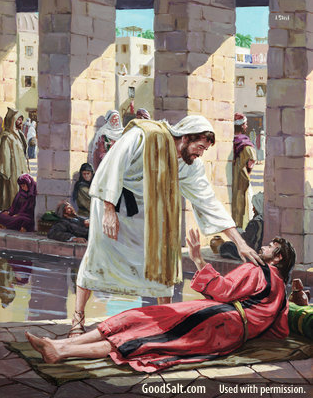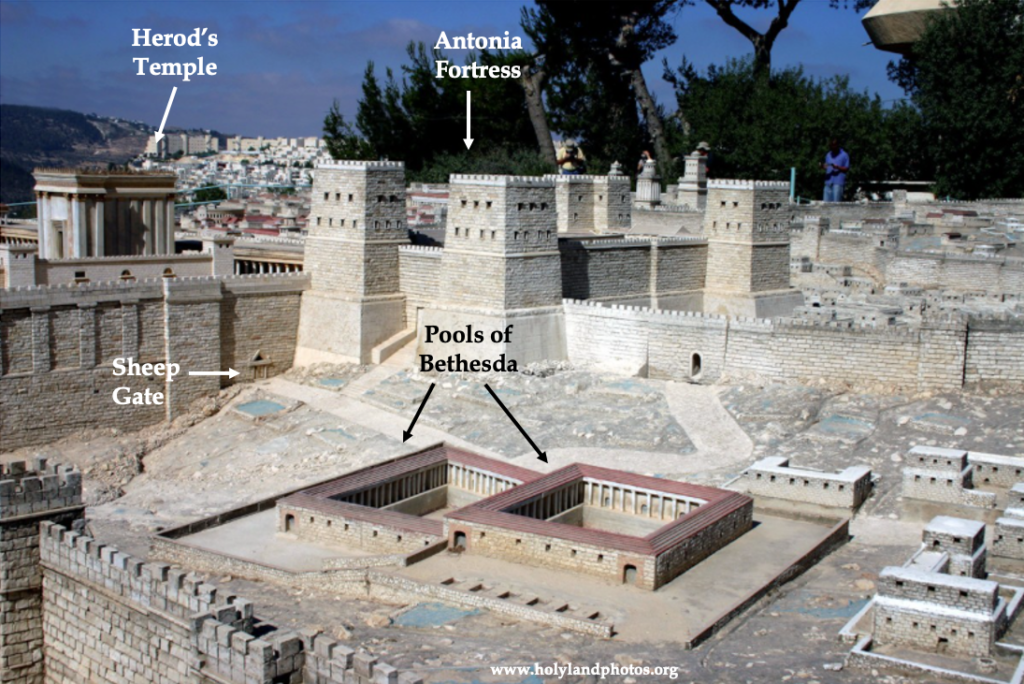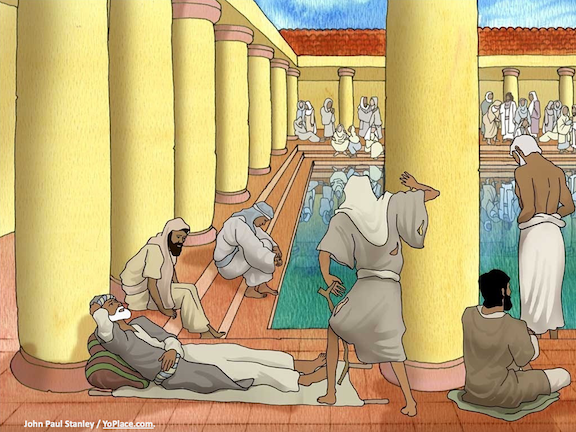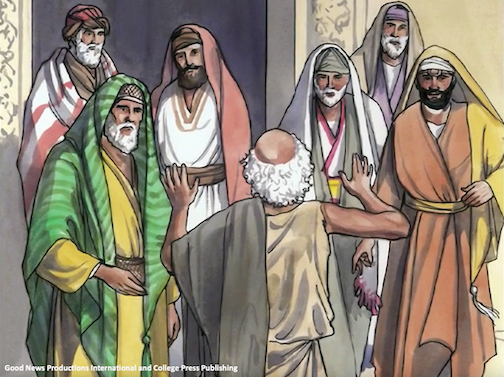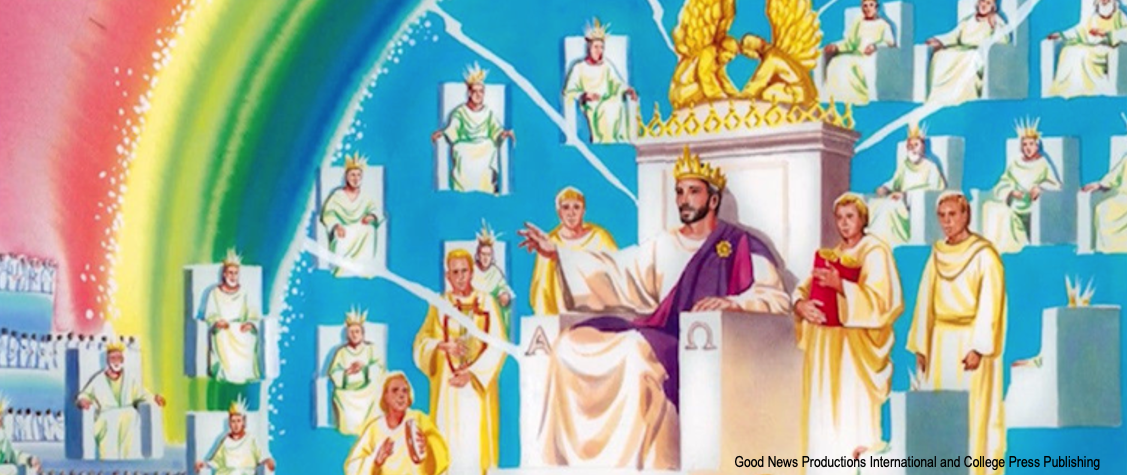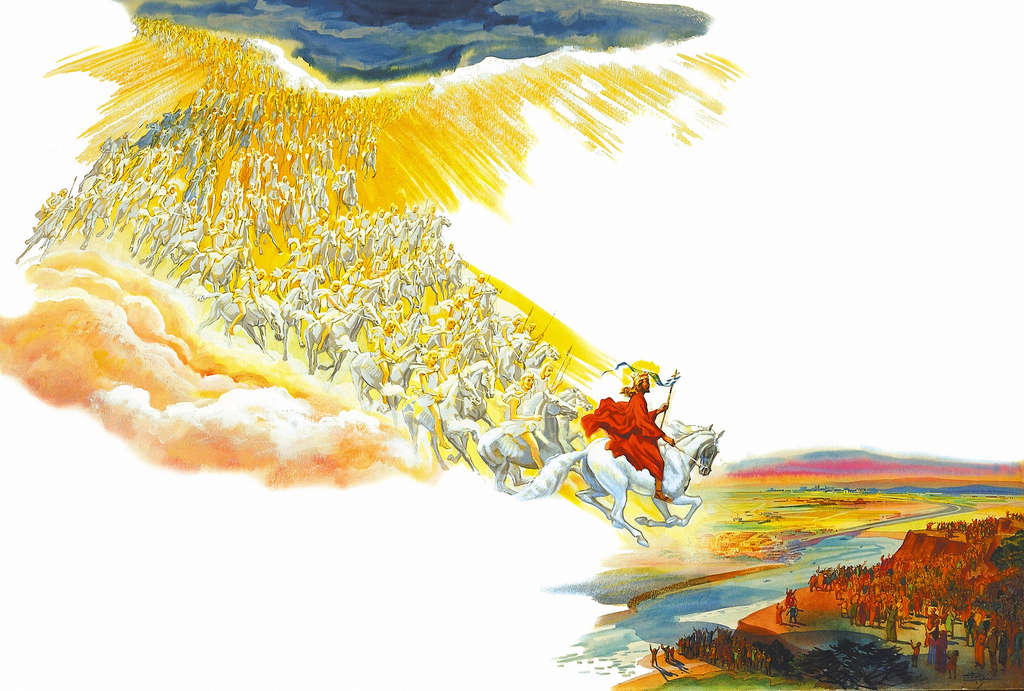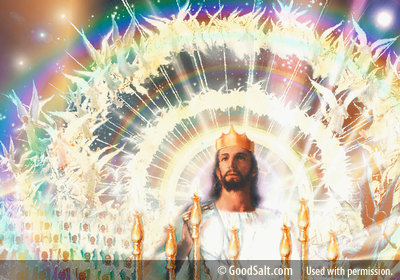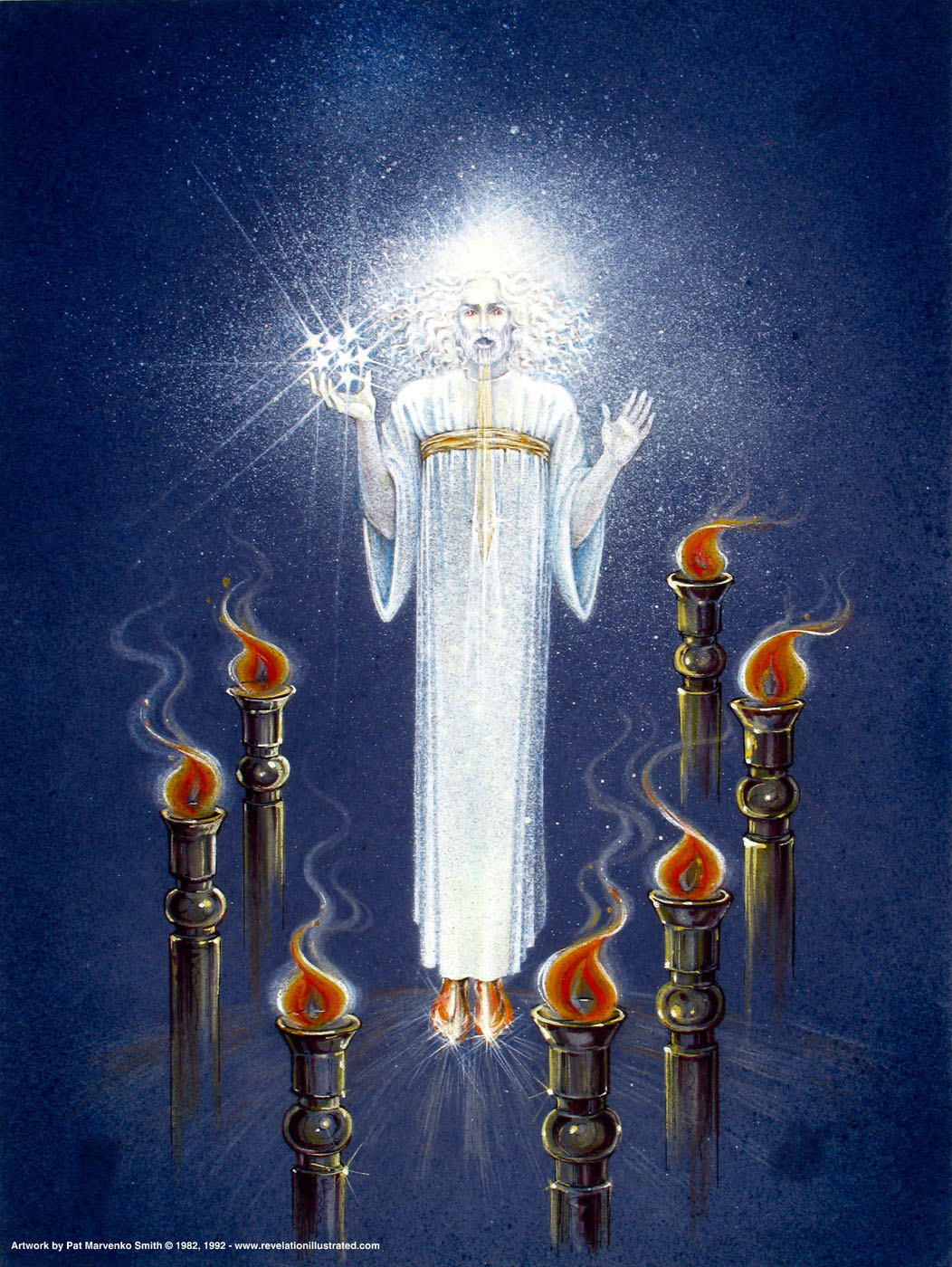“22 Then they said to him, ‘Who are you, that we may give an answer to those who sent us? What do you say about yourself?’ 23 He said: “I am ‘The voice of one crying in the wilderness: ‘Make straight the way of the Lord,’ as the prophet Isaiah said.” John 1:22-23
“A remarkable religious phenomenon broke out in the United States in the year 1948. It started in a tent near the Hollywood area of Los Angeles, under the preaching of a young evangelist by the name of Billy Graham. The crowds were a little sparse in that tent at first, but as the preaching went on, they began to grow. Finally, certain rather prominent Hollywood celebrities came to the meetings and were converted. At first, as often happens with gatherings of that sort, the press totally ignored them. But when some of the well-known names of Hollywood became involved, the media began to take an interest in what was happening. Eventually reporters were sent to investigate and to interview this rather strange young preacher, who dressed in pistachio-colored suits, wore flaming red ties, spoke with a pronounced Southern accent, and yet had incredible appeal to the masses. It was evident that God was doing something there. That was the beginning of Billy Graham’s career. As news of those meetings spread across the country, other cities invited him to come and preach. He went on to Boston, where all of New England seemed to turn out to hear him. Thus began the great Crusades that swept across America in the latter part of the ’40’s and ’50’s under Billy Graham’s ministry.
“As it was with Billy the Baptist in 1948, so it was with John the Baptist in the late ’20’s of the first century. He, too, was a young man, in his early ’30’s, six months older than Jesus. He, too, dressed rather strangely, even for that day. He did not wear green suits; he wore animal skins and ate a strange diet of grasshoppers and wild honey. This young man had a very powerful message, which seemed to have great attraction to people. At first, they came out by dozens, then by scores. and finally, hundreds and thousands forsook the cities of Judah and Galilee to hear this remarkable preacher out in desert places. Finally, the response was so tremendous. and this man became so popular, that even the religious establishment of Jerusalem had to take note. They sent a delegation to investigate this remarkable preacher.” [1]
John records the event for us in his gospel. From this event, we will discover how we too, like John the Baptist, can be used greatly by God. To be greatly used by God we are to…
RECOGNIZE WHO WE ARE NOT (1:19-21). Drawing such a large following, John the Baptist naturally attracted the attention of the religious leaders of Jerusalem, who sent a delegation to question this desert preacher. They could not ignore someone who attracted such a large gathering. John was an enigma. He did not conform, so they wanted to know more about him. Whenever God begins to use someone greatly for Him, it gets the attention of the religious establishment. They are suspicious and want to control what is going on. They are also threatened.
1:19: The apostle John begins this new section with “Now this is the testimony of John” (1:19a). Earlier the apostle wrote that “John” the Baptist was “sent from God… to bear witness of the Light,” Jesus Christ, “that all through him might believe” (1:6-8). Now the apostle gives more detail about the Baptist’s “witness” or “testimony” (1:19-34).The term “the Jews” (hoi Ioudaioi) is used sixty-eight times in John’s gospel and refers to the Judean Jews. The apostle John was a Galilean Jew, so when he addresses opposition to Jesus, he uses this term. [2] In 1:19, the use of hoi Ioudaioi probably refers to the Sanhedrin, Israel’s highest religious/political court, who sent this delegation of “priests and Levites from Jerusalem” to investigate this preacher. [3]
“The priests were descendants of Aaron who took the leadership in matters of theological and practical orthodoxy, including ritual purity. The Levites descended from Levi, one of Aaron’s ancestors, and assisted the priests in their ministry, mainly in the areas of temple music and security.” [4]
When this delegation asks John, “Who are you?” the Baptist responds by vigorously telling them who he is not. 1:20: In John’s day, everyone was looking for the promised Messiah, so naturally
John’s actions and message created a lot of speculation as to who he was. Might he be the promised Messiah? John denounces any speculation regarding these messianic expectations. “I am not the Christ,” he asserts. Whatever John was, he was certainly not the Christ. There was a Christ, but he was not him.
We all need to be reminded that we are not the Messiah-God. We have limitations. We are only here because God spoke us into existence. Like John the Baptist, we need to know who we are not.
1:21a: The Old Testament prophesied that Elijah would precede the Messiah (Mal. 4:5). Perhaps John is the reincarnated Elijah. After all, his appearance is similar. His message is similar. Elijah did not die. Was this the great Elijah? People who believe in reincarnation say here is an example of it. They hold that here is a man who once lived on the earth appearing again as another man — Elijah reincarnated. But if you look closely at this text, you will see there is no substance to that claim. John says very plainly, “I am not.” His was not a reincarnate appearance. The Bible tells us that people die once and then they face God. “As it is appointed for men to die once, but after this the judgment.” (Heb. 9:27). This is the only chance you have on earth to get right with God. While John did fulfill the preliminary ministry of which the prophets spoke (in the form of Elijah, he was not the actual prophet himself).
1:21b: Deuteronomy 18.15-19 speaks of a great prophet like Moses who would come and restore Israel. “The Jews” thought John the Baptist must be this “great prophet.” They failed to understand that this “great prophet” was the same as the Messiah (cf. John 1:24; 6:14; 7:40-41). To correct this misunderstanding, the apostle Peter would contend that the Prophet was equivalent to the Messiah (cf. Acts 3:22-26). [5] Again, with an emphatic, “No,” John the Baptist denounces this title. He was not the long-awaited Prophet any more than he was the Messiah or Elijah. [6]As a proper witness, John recognized who he was not. His three-fold denial makes his witness clear.
We see that the Baptist was not comfortable talking about himself. For he was here to bear witness to Another Who was far greater and superior to him (cf. 1:1-5, 15). The increasing shortness of John’s successive answers cannot be missed here:
“I am not the Christ.”
“I am not.”
“No.”
The Baptist seems to have a dislike for answering questions about himself. His mission was not to bear witness to himself. He was not comfortable talking more about himself than Jesus. His mission was to bear witness to the Light (1:6-8). He recognized who he was not. He was not the Messiah. He was not Elijah. He was not the great Prophet.
If we are going to be greatly used by God, we must recognize who we are not. We are not the Messiah. We are not the great Prophet. We are not Elijah. We cannot think of ourselves as more than what we are. It is not our glory, but His, we are to seek. We need to remember that we are not Jesus. We are not God. Nor can we meet needs that only God can meet. We are only witnesses. God did not call us to be someone else. He called us to be the person He made us to be. To be greatly used by God you must recognize who you are not. John knew who he was not.
Secondly, we must REALIZE WHO WE ARE (1:22-23). This religious delegation was not content with John’s denials. They must have some response to take back to their leaders, so they questioned him further 1:22: “Give us a break! Tell us something we can take back to Jerusalem. If you are not any of these people, then who are you? What do you have to say about yourself? Show us your résumé.” They turn the matter over to John.
Wow! What an opportunity. At this point, John could have said anything. He could have said, “I am the great forerunner or prophet or preacher! Look at how many baptisms I have performed. Look at how many people I have attracted. Wow! I must be awesome. I need to be leading church growth seminars or teaching preaching classes. I need to be invited to preach at evangelism conferences.”

But John did not flash his credentials. He did not flatter himself or promote his own name. He did not attempt to make himself great. John knew who he was. Look at his reply taken from Isaiah 40:3. 1:23: John says, “If you want to know who I am read the prophet Isaiah. It’s written there for you.” This indicates that John himself had learned about who he was and what he was to do by reading and studying God’s Word. Most likely when John asked himself, as he must have as a young boy, “Who am I?” he found the answer in the Word of God: “I am to be a highway builder. I am to prepare a highway in the desert for our God.” Not for people to get to God, but for God to get to people.
When John the Baptist was asked, “Who are you?” (1:22), he turned to the Word of God to reveal his identity (1:23). The only reliable and accurate source of information about us is God’s Word (cf. Heb. 4:12). The Bible tells us that our identity is determined by what God says about us, not what others say about us or even by what we do. Our spiritual birth determines who we are (I Pet. 1:3, 23), not our actions. We are who we are because we were born into God’s family through faith alone in Christ alone (John 1:12-13), not because we worked our way into God’s family.
The Bible tells us, “If anyone is in Christ, he is a new creation, all things have passed away; behold, all things have become new” (2 Cor. 5:17). When we believe in Christ, we become a new person. We are now part of a royal family—God’s family—the church (John 1:12; Ephes. 1:22-23; 3:14-15; I Pet. 2:9-10). Learning what that means takes time. We have been seeing ourselves through one set of eyes for so long, that it is hard for us to believe we are a child of the King. But God now says to you, “You are MY CHILD through Jesus and that makes you royalty.” God now says, “I not only want to be in a relationship with you, but I also want to change the way you see yourself; because if I can change the way you see yourself, you will live a radically transformed life.”
We are not the same person we were before we became a Christian. Some of you may ask, “If I am not the same person I used to be, why do I still practice the same old ways and habits?” Because the enemy of your soul, Satan, has deceived you into believing you are the same person you were before you came to Christ (Rev. 12:9-10). And we act in the way we perceive ourselves to be.
The Bible tells us, “For as he thinks in his heart, so is he” (Prov. 23:7). Our behavior does not determine who we are. How we see ourselves determines how we will behave. God tells us in His Word we become His child the moment we believe in His Son’s name (John 1:12; I John 3:1), and God wants us to learn to start acting in a way that is consistent with who you are. Changing our actions starts with clarifying our identity.
From the beginning of time, Satan has fought against us, knowing who we truly are in Christ. He does not want us to see ourselves as God sees us. He knows that if we start to see ourselves through God’s eyes, we will begin to live out God’s purposes for our lives which pose the greatest threat to Satan’s plan to “steal, kill, and destroy” us (John 10:10a; Ephes. 6:11-13; I Pet. 5:8; Rev. 12:9-10).
Many of us have been told we are not enough, not doing enough, or not as valuable as others. We have been defined by lies that say, “You can never be free from your past,” or “You will always be stuck in a shame cycle that leads to more bondage and shame.”
God wants us to know that we are far more than what we have been told by Satan and other people. No one has the power to define us but the One Who created us and redeemed us. [7] God takes a lot of time in the Bible to tell us who we are when we become His children through faith in Jesus (John 1:12; I John 5:1). The phrase “in Christ” or “in Him” is used 120 times in the New Testament and refers to how God sees us after we become children of God by believing in Jesus. Seeing ourselves through God’s eyes is what I will refer to as our new identity in Christ. To begin to understand your new identity in Christ, please see My New Identity in Christ post on this website.
John the Baptist discovered his identity as a highway builder in Isaiah 40:3. Isaiah goes on to explain how highways are built: “Every valley shall be exalted, and every mountain and hill brought low; the crooked places shall be made straight and the rough places smooth” (Isa. 40:4). Check with a modern road builder and he will tell you that is exactly how a highway is built: the low spots are filled in, the high spots are leveled, the crooked ones are straightened out, and the rough ones are made smooth.
This beautiful description of John’s ministry to people is still the way repentance works in the human heart today. If you feel low and worthless, depressed, insignificant, your life is meaningless, you are in a valley — then transfer your trust to Christ and He will lift you up: “Every valley shall be exalted.” That is where Jesus will meet you. If you feel proud and self-sufficient, able to handle your own affairs, then come down: “Every mountain and hill brought low.” That is where Christ will meet you, and nowhere else.
If you are handling things in a crooked manner, if you are devious in your business dealings and untrustworthy in your relationships with others, then realize there is only One who can forgive your crooked ways – Jesus. “The crooked places shall be made straight.” That is what John the Baptist preached: “Repent”(Matt. 3:2, Mark 1:4; Luke 3:4). When John the Baptist preached a baptism of repentance for the forgiveness of sins, and the people came to him confessing their sins (Matt. 3:5; Mark 1:4- 5), this was to prepare these self-righteous and self-reliant Jews to believe or rely on the coming Messiah for eternal life instead of themselves (John 1:6-7, 19-34; 3:22-36; cf. Acts 19:4). The verb “repent” means a change of mind (see comments on 1:7b). Hence, repentance in an evangelistic context is simply changing your mind about whatever is keeping you from believing in Christ and then believing in Him alone for eternal life (cf. Mark 1:15). Christ will meet you right there.
If you are given to riding roughshod over people, your life is filled with a lot of rough, tough situations, repent, change your mind and trust Christ to save you; decide to smooth out those places, deal with those things, and Jesus will meet you right there.
“And the rough places smooth.” That is a highway for God to come to you. That was John’s ministry all through his life.
John the Baptist knew that he was merely a “voice” (1:23). He is not an important person, like a prophet or the Messiah. He is a voice. Unlike the eternal Word of 1:1, a voice is temporary. A voice is fleeting. A voice is fading. And that is John’s view of himself. I am merely a fading voice that is crying in the wilderness.
John’s message is one of preparation: “Make straight the way of the Lord.” John summons the people to be ready for the coming Messiah. He is the one preparing the way for the coming King (an important role in ancient times involved leveling the land and clearing the road). He saw his role as the voice preparing the way.
When I played football in high school and college, some teams ran the single wing offense. One of the positions in the backfield was the blocking back. He never carried the ball, but just blocked for the ball carrier. He never received any glory, but he did it because he was a team player. That is what John was. John was like the old-time telephone operator – when they connected you to your party, they just got out of the way.
Even so, we are called to be voices. We are the temporary voice chosen to prepare the way in our generation. Each generation has a voice, and we are the voice for this time and this place. Our role is temporary, but it is essential. Without the voice, the people will not hear. And if they do not hear, they won’t be able to believe in Jesus for eternal life (cf. Rom. 10:14-15). .
We are to speak and live the message of Jesus before a watching world. So, if God is going to greatly use us, we must recognize who we are not and who we are. We are not Jesus. We are voices. We are to prepare people to believe in Christ. The final way to be greatly used by God is to…
POINT PEOPLE TO JESUS (1:24-34). John’s examiners are still not satisfied with his responses, so they question him further. 1:24: The apostle John informs us that this delegation was sent “from the Pharisees” to question John the Baptist.
“The ‘Pharisees’ were an important sect of Judaism. They numbered about 6,000 and were most influential. They held a strict interpretation of the Law and embraced many oral traditions. The Pharisees were the only minor group to survive the Jewish war of A.D. 66-70, and their teachings formed the basis for Talmudic Judaism. Their question to the Baptizer was, in essence, ‘Since you have no official title, why are you baptizing?’” [8]
By mentioning “the Pharisees” here, the apostle seems to be preparing his readers for future interactions between the Pharisees and Jesus [9] (cf. 7:32, 45-48; 8:3, 13; 9:40; 11:46-47, 57; 12:19, 42; 18:3). 1:25: The Pharisees’ interest lay in John’s authority. “Since you are not the Christ, the Prophet, or Elijah, why are you baptizing? Who gives you the right to baptize?”
“Their question implied that it was inappropriate for John to baptize. The Jews practiced baptism for ritual cleansing, but in all cases the baptismal candidates baptized themselves.” [10]
“There was no precedent for John to baptize other people, and the Jewish leaders did not regard themselves as needing to repent. This was something Gentiles needed to do when they converted to Judaism. Evidently, when Gentiles converted to Judaism the males of the family underwent circumcision, and all the members of the family, of both sexes, were baptized.” [11]
John’s response clearly reveals the role of the proper witness. What does John do when these men question by what authority he is baptizing all these people? The Baptist points them to Jesus. In essence John says, “This is not about me. It is not about the rite of baptism. It is all about Jesus.” John’s interest is in Christ and Christ alone. In accordance with the gospel’s purpose, John the Baptist’s testimony tells us who Jesus is.
HOW DO WE POINT OTHERS TO CHRIST? First, we must TELL OTHERS OF JESUS’ SUPERIOR AUTHORITY (1:26-28). 1:26-27: John informs these interrogators that there is One Who “stands among” them Whom they “do not know…, Whose sandal strap” he is “not worthy to” unlace. Loosing another’s sandal was the most menial of tasks. Only the lowest slaves would loosen sandals. Even disciples were not asked to loosen the sandals of their teachers. Yet John says, “I am unworthy to do the single most humbling task—loosen His sandals.” Why? Because of Jesus’ superiority.
John’s response implies that his authority to baptize others comes from an authoritative Figure Who was unknown among these Jewish religious leaders. This authoritative Figure possessed authority that is far superior to John’s or that of the religious leaders. This initial response by John the Baptist infers that he himself baptized with water under Christ’s authority. He stressed the superior authority of Jesus, by saying that he himself was unworthy to do even the most menial service for Him. [12]
Throughout this passage we see John’s humility. As the introducer to Jesus, John possessed a tremendous privilege, yet he did not let it go to his head.
“Those who become ‘successful’ in ministry, specifically those who attract a great following, face a particular danger. If they are not careful, they begin to believe their own press; that is, they allow the well-intentioned encouragement of others to become the basis of their own perspective. And it isn’t long before they believe they are indispensable to the Lord’s work…
“What about you? Are you serving on a committee and feel that it cannot function without you? Are you leading others and feel that the goals will not be met without your direct involvement? Must you have a hand in everything that occurs around you for fear that nothing will be done ‘right’ otherwise? Are you that controlling? How comfortable are you allowing subordinates to have a vision for your organization that is greater than your own? Are you one of those who justifies a non-stop schedule with the old excuse, ‘I’d rather burn out than rust out’?…
“John effectively fulfilled the role for which he was called by God, and he knew he was successful in completing the task given to him, yet he remained humble.
“Humility does not lead us to feel inferior or to doubt our own worth. Self-loathing is not the path to humility. Thinking too little of ourselves is actually a form of pride. On the contrary, humility is seeing ourselves as God sees us. Humility is understanding our place in the Lord’s plan while giving preference to the welfare of others over self. Mostly, humility is recognizing the Lord as the one and only worthy object of worship.” [13]
God trusts the humble with great privileges because He knows they will not receive any glory for themselves. They will give God the glory. If you want God to use you greatly, you must get out of His way and humbly follow Him.
No one has greater authority than the risen Lord Jesus Christ. He possesses “all authority… in heaven and on earth” (Matt. 28:18). The Greek word translated “authority” (exousia) in 28:18 refers to both the right and the power to do something. [14] This word is not merely power or might (dunamis), but the authority or right to use this power (exousia). [15]
For example, a 6’ 5” man weighing 300 pounds walks into a bank and steals over $5 million dollars. He has the ability or power (dunamis) to do this, but he does not have the right to do this. However, a 6’ 5” policeman weighing 300 pounds runs after this robber and tackles him to the ground and puts handcuffs on him. This police officer has both the power and the right (exousia) to subdue this bank robber.
In the context of Matthew 28, after Jesus rose from the dead, the Father gave His risen Son “all authority” to fulfill the making of disciples among all the nations. Jesus has both the power and the right to use that power (exousia) “in heaven and on earth” to advance the going, baptizing, and teaching involved in making His disciples among all the nations (Matt. 28:18-20). If we do not like to be told what to do, we are going to be resistant to Christ’s authority. Jesus not only has the power to command us to make disciples, He also has every right to do so.
The church must learn to appeal to Jesus’ absolute authority “in heaven and on earth” to open hearts and homes if we are going to fulfill the mission He has entrusted to us (Matt. 28:18-20). Satan is the ruler of this world, and he will use this world system to desensitize unsaved people to their need for the Savior (John 12:31; 2 Cor. 4:3-4; 11:3-4; Ephes. 2:2). But the powers of darkness are no match for the absolute authority of the risen Lord Jesus. Christ has the authority to remove kings and raise them up (Dan. 2:21). He can open doors and slam them shut (Acts 16:6-7; 28:31; Col. 4:3). For Jesus to say that “all authority” has been given to Him “in heaven and on earth” is an astonishing claim – it is a claim only God could make.

Christ’s vision for the church involving His authority was stated earlier in the book of Matthew: “18 And I also say to you that you are Peter, and on this rock I will build My church, and the gates of Hades shall not prevail against it. 19 And I will give you the keys of the kingdom of heaven, and whatever you bind on earth will be bound in heaven, and whatever you loose on earth will be loosed in heaven.” (Matt. 16:18-19). When Jesus asked His disciples who they say He is, Peter replied, “You are the Christ, the Son of the living God” (16:15-16). Peter refers to Jesus as the promised Messiah (“the Christ”) – God (“Son of God”) Who would eventually save Israel and the entire world (John 1:29; Rom. 11:26) and bring them all under His reign (cf. Ps. 2; Rev. 19:11-20:6). Jesus concludes that His Father revealed this insight to Peter (16:17).
Then Jesus said, “And I also say to you [singular] that you [singular] are Peter, and on this rock I will build My church, and the gates of Hades shall not prevail against it” (16:18). When Jesus said, “on this rock I will build My church,” He was not saying He would build His church on Peter and his successors, since the word Christ used to describe Peter is a different Greek word (Petros which is masculine) than He used to describe the church’s foundation (Petra which is feminine). Jesus called Peter by the word, Petros, which means a “single rock or stone;” [16] but to describe the foundation of the church, He used the word, Petra which means a “bedrock or massive rock formations,” [17] “a collection of rocks knitted together to form a larger slab.” [18] A petros would simply be a small portion of a petra. If Jesus meant Peter, He could have easily said, “…you are Petros, and on this petros I will build My church…” Instead, He said, “…you are Petros, and on this Petra I will build My Church. So, Peter was not the “rock” on which the church was to be built.
The Rock on which Jesus would build His church was the revelation God the Father gave Peter, namely that Jesus is “the Christ, the Son of the living God” (16:16-17). Peter and the other apostles are little stones in the Church’s foundation, but Jesus is the Rock, the Chief Cornerstone, on and around which everything else is built as Peter’s and Paul’s later writings teach (I Pet. 2:4-8; cf. I Cor. 3:10-15; Ephes. 2:20). Hence, Jesus’ Church will be built on the solid foundation (Matt. 7:24) of Himself (Matt. 16:16, 18).
“Jesus’s church, then, would be comprised of His unified followers who confess Him as the Christ, the Son of the living God, as Peter did.” [19]
The word “Church” comes from the Greek word ekklēsia which means “an assembly or gathering of people.” [20] To have a church, God’s people must gather. Technically, the word comes from two Greek words. First, ek, which is “out” and kalleō, which means “to call.” God’s people are called out from the world and called together around Jesus Christ.
Christ promises that “the gates of Hades shall not prevail against” His church (16:18b). Gates are defensive weapons used in battle, not offensive weapons. No army carries its city gates into battle. So, the church is on the offensive and “Hades” or hell is on the defensive. Christ guarantees that hell shall not “prevail” or be victorious against the expansion of the church that Jesus is building. Hell cannot successfully resist the building of Jesus’ church. Christ envisioned an unstoppable church that would flatten the gates of hell and rescue people from an eternity separated from God through the preaching of the gospel. Jesus is not trying to stop the forces of Satan and hell; hell is trying to stop Him!
“The church is like an embassy. The U.S. has embassies throughout the world, and the people working at an embassy are to live out the values and laws of the U.S. as they represent their homeland in a foreign country. Each embassy, then, is a little bit of America a long way from home. Similarly, the church of the Lord Jesus is to adopt the agenda of its heavenly King and enact it on earth. Christ’s church is a little bit of heaven a long way from home, designed to withstand the authority of hell (its gates) (16:18). Hell’s attempt to stop the church’s progress in history is thwarted as the church executes heaven’s authority on earth.” [21]

Christ then said to Peter, “And I will give you [singular] the keys of the kingdom of heaven, and whatever you [singular] bind on earth will be bound in heaven, and whatever you [singular] loose on earth will be loosed in heaven” (16:19). “Keys” permit access or entrance into something. Beginning on the day of Pentecost, Peter preached the gospel of Jesus’ death and resurrection (Ac. 2:14-47), which gave access to Christ’s kingdom authority to everyone who believed in Jesus. Later Peter used these “keys” to open the door to Christ’s kingdom when he preached the gospel to Cornelius and his household (Ac. 10:34-48). The truth is, not only Peter, but all the apostles and all believers have these “keys” to open Christ’s kingdom to the lost by preaching the gospel to them (cf. Mark 16:15). Binding and loosing refers to decisions that the early church leaders would make that would permit (“loose”) or prohibit (“bind”) certain teachings and practices in the building of Christ’s Church (16:19b; cf. Acts 19:39-41).
“God doesn’t leave his church powerless. The problem is that we frequently don’t understand who we are and don’t access the resources available. Even though an American embassy is a small outpost surrounded by a foreign nation, it can be confident that America stands behind it because it’s connected to something that exerts a powerful influence. And though the church often seems small and weak, it’s connected to the ultimate power in the universe.
“What are these ‘keys of the kingdom of heaven’? They’re divinely authorized resources that grant us authority and access (see Isa. 22:22). Christians, through the church, have access to heaven’s kingdom rule. Your world isn’t supposed to be ruling you; you are supposed to be ruling your world. You’re supposed to be regularly utilizing heaven to help you live on earth—not merely visiting church on Sunday mornings. Believers are to study the Bible and gather with the church for a reason: to learn how to access the divine viewpoint and live out God’s kingdom rule in the world. You will never rule your world of relationships, emotions, employment, or finances if you continue to employ the keys the world offers you, or if you’re not connected to a local church that possesses and operates with the keys of the kingdom.
“Note that the word ‘keys’ is plural in this passage; that’s because the word gates is plural (16:18). For every hellish gate (the exercise of Satanic authority), there is a corresponding kingdom key designed to give the church access to heaven’s kingdom authority.
“To ‘bind’ and ‘loose’ is to restrain and to set free. The church is to use heaven’s keys (heaven’s viewpoint and spiritual resources on a matter), operate according to that perspective, and then call on heaven’s authority to bind and loose. It’s critical to understand that heaven is waiting on the church to act in the matter of permitting and releasing before heaven’s authority gets activated in history. Binding and loosing don’t imply you can make God do whatever you want. First, it must be in accordance with God’s will. You can only bind and loose what ‘will have been’ already bound and loosed in heaven. Second, know that answers to prayer are not for your sole benefit. They’re to benefit others. God calls his people to be a blessing.” [22]
The test of the church’s authority and power is whether hell backs up when the church shows up. If hell is winning, then we are not allowing Jesus to build His church. Instead, we are building our church using Christ’s name. Too many Christians are saying, “Well, I’m just trying to keep Satan from defeating me.” That’s “Backward, Christian Soldiers!” The church is to be on the offensive in the world.
So, we go to those gates in the power of the Holy Spirit. We challenge them. We storm them. And we tell the prisoners of death the good news of Jesus’ death and resurrection (I Cor. 15:1-8). Understand this… the gospel message is true! It is powerful (Rom. 1:16) and it cannot be overpowered! No matter how bad the news is in this world, the good news of Christ is the most powerful!
For generations we have taken the rest of what Jesus said in Matthew 16:18 to say that God’s little church will be beaten and battered. Satan will kick it around and have his way with it at times, but in the end if we hold on long enough, God will come back and rescue His bruised and abused little church. Folks, Jesus did not die to buy a powerless church! Instead, He has brought together a people for God, a people who are designed to be strong, mighty, and victorious in Christ. Christ’s Church can meet Satan head on in battle and win so long as Jesus and His power is in their midst.
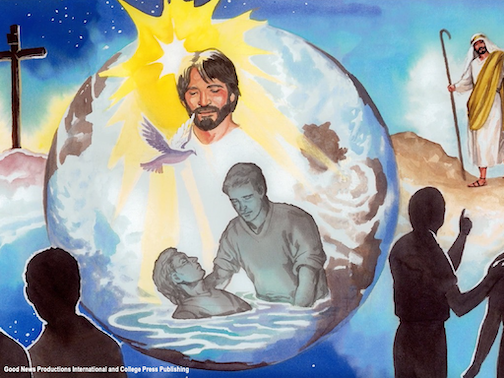
In summary, Christ wants to build His Church through the disciple-making process which He described in Matthew 28:18-20. On the basis of the Rock’s (Jesus’) all-encompassing “authority… in heaven and on earth” (28:18), we are to “go” into all the world and preach the gospel to the lost (28:19a; cf. Mark 16:15). Then we are to “baptize” with water those who believe the gospel, so they can express their commitment to follow Jesus as His disciple no matter what the cost (28:19b; cf. Luke 14:25-33). Then we are to “teach” them to “observe” or obey (not just hear) all of Christ’s commands (28:20; cf. James 1:22). This is Christ’s one and only plan to build His Church and reach all the world with His gospel message. Will we join Him?
Look at the following chart that contrasts a church on the offensive with a church on the defensive:
| A Church on the Offensive… | A Church on the Defensive |
| Invades Satan’s territory | Protects its own territory. |
| Takes risks. | Plays it safe. |
| Takes the gospel to the world. | Expects the world to come to them. |
| Asks, “What can be?” | Asks, “What can go wrong?” |
| Asks, “What can we do next?” | Asks, “What have we done in the past?” |
| Views failure as a steppingstone. | Views failure as a tombstone. |
| Views opposition as an opportunity | Views opposition as an obstacle. |
| Expects conversions. | Is not thinking about conversions. |
| Sacrifices to reach the lost. | Is satisfied without the lost. |
| Measures success by its sending capacity. | Measures success by its seating capacity. |
| Embraces change. | Resists change. |
| Walks by faith. | Only talks about faith. |

The apostle John now tells us where the exchange between John the Baptist and the religious delegation took place in John 1. 1:28: The majority of original manuscripts read “Bethany”instead of the New King James’ “Bethabara.” The word “Bethany”[23] may come from bet aniyyah, meaning “house of the boat/ship.” [24] This reference to “Bethany beyond the Jordan” would be a very suitable name for a small ford community on the east bank of the Jordan River where John the Baptist started his ministry. It was known as a refreshing place for weary travelers. [25] This was not the “Bethany” near Jerusalem, but the Bethany of Perea which was east of the Jordan River (see map).
TELL OTHERS OF JESUS’ SACRIFICE (1:29). John’s public testimony continues the following day (“the next day”). As the Baptizer ministers, he sees Jesus coming toward him and makes one of the great statements of the New Testament. 1:29: The word translated “Behold” [26] is a favorite expression of the apostle John’s. It means “to point out something to which the speaker wishes to draw attention. Look! See! Pay attention!” [27] Of its twenty-nine New Testament occurrences, [28] John uses it fourteen times in his gospel (cf. John 1:29, 36; 3:26; 5:14; 7:26, 52; 11:3, 36; 16:29; 18:21; 19:4, 14, 26-27). [29]
What is John the Baptist saying here? If you read through the Old Testament, you will find it is filled with many blood sacrifices which were all foreshadows of the substitutionary death of Jesus Christ. God graciously provided the proper covering for Adam and Eve when He “made tunics of skin” through the death of an innocent animal (Gen. 3:21). By providing a covering with animal skins, God provided forgiveness through the “shedding of blood” (Heb. 9:22). Abel, the son of Adam, offered a lamb to God and God smiled upon that sacrifice (Gen. 4:2-4). Later Abraham made offerings to God (Gen. 22:13; et al.). Then the children of Israel were instructed to sacrifice a lamb and sprinkle its blood on their doorposts, so the angel of death would pass over their family without killing the firstborn (Exod 12:3-28). Israelites were also taught at the foot of Mount Sinai to bring certain animals to slay and to offer the blood and meat of those animals to God (Exod. 24:1-8; cf. 29:1-46; 30:10; Lev. 1:1-17; 3:1-7:21; et al.).
Many are offended by the fact that the Old Testament is replete with animal sacrifices, of actual blood being spilled. Every morning and every evening there were animals slain in the temple in Jerusalem. On the great feast days of Israel thousands of animals were sacrificed. A stream of blood runs all through the Old Testament.
Every Old Testament blood sacrifice was a foreshadowing of Jesus Christ, “the Lamb of God” (John 1:29). Like that first animal that was sacrificed for Adam and Eve (Gen. 3:21), Jesus would also be innocent and without sin because He was and is God (John 1:1, 14, 17; 2 Cor. 5:21; Heb. 4:15; I Pet. 3:18). And like that first sacrificial animal, Jesus was born to die in the place of others, the just for the unjust, the Sinless for the sinful (John 1:29; Matt. 1:21; Rom. 5:8; 2 Cor. 5:21; I Pet. 318; I John 4:9), so that “whoever believes in Him should not perish but have everlasting life” (John 3:16).
Since God is always “righteous” and “just,” His judgments are always an expression of His righteous and just standards (Rev. 16:5-6; cf. Rom. 6:23). And because God is eternal, He never lowers those standards. We must either meet God’s righteous and just standards ourselves or have a Substitute who meets those standards. Since none of us can live up to God’s standards (Rom. 3:9-23), God provided a Substitute for us in the Person of Jesus Christ Who lived up to God’s standards because He Himself is God. When a person believes in Jesus Christ for His gift of salvation, God imputes His righteous life to that believing person’s account; thus, that person is counted as having met God’s standard (Rom. 4:5). Those who refuse to believe in Christ as their Substitute on the cross, will get what they deserve for their decisions and actions. [30]
Every Old Testament sacrifice was a testimony that Someone was coming Who would supply the explanation for all the blood sacrifices in the Old Testament. Now, at last, there is an answer to the cry of Isaac, as Abraham his father was taking him upon the mountain to offer him, “Where is the lamb?” and Abraham replied, “God will provide for Himself the lamb” (Gen. 22:7-8). Centuries later, as John the Baptist sees Jesus coming toward him, knowing Who He was, having baptized Him six weeks earlier, he says to the crowd, “Behold, the Lamb of God, who takes away the sin of the world.” Here is the One Who will satisfy God’s demand to punish our sins.
“The question in the Old Testament is, ‘Where is the lamb?’ (Gen. 22:7). In the four Gospels, the emphasis is ‘Behold the Lamb of God!’ Here He is! After you have trusted Him, you sing with the heavenly choir, ‘Worthy is the Lamb!’ (Rev. 5:12).” [31]
John states that the sacrifice of this Lamb “takes away” [32] the sin of the world, not just the Jews. [33] The verb used here symbolizes more than just “covering” (to cover something means it is still there). When John says the Lamb of God takes away the sin of the world, it means that He removes it.
The writer of Hebrews informs us that the Old Testament blood sacrifices could not perfect the worshiper because they could not “take away sins” (Heb. 10:1-4; cf. 9:11-15), but only cover them. Only the sufficient sacrifice of the perfect God-Man could remove sins once and for all (Heb. 7:26-28; 9:11-15, 24-28; 10:10-18). The perfect Lamb of God was the only One qualified to address the sin of the whole world (I John 2:2).
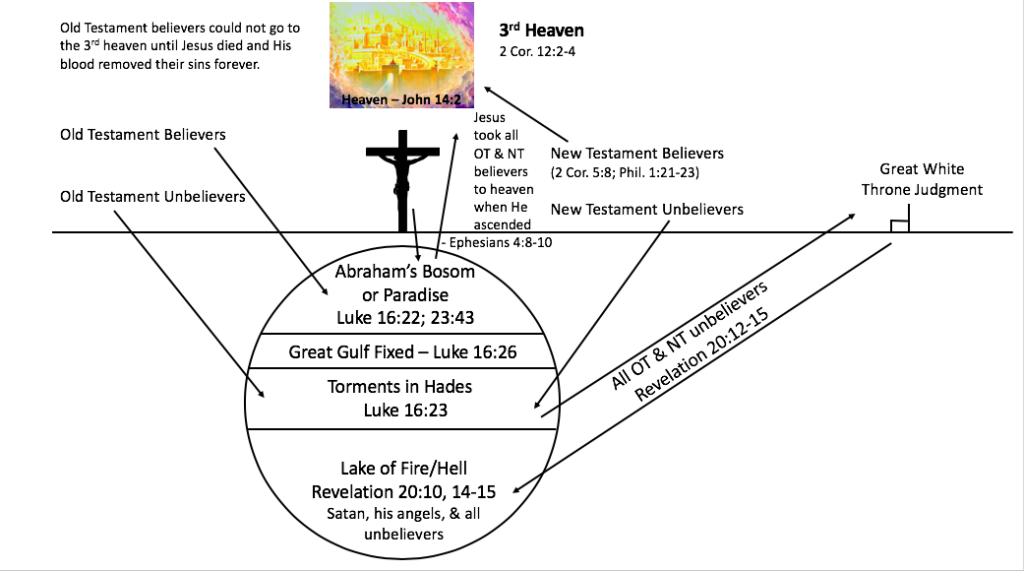
Before Jesus died on the cross, believers in Jesus went to a place called “Paradise” or “Abraham’s bosom” (Luke 16:22; 23:43) and unbelievers went to a place called “Torments” in Hades (Luke 16:23), both of which were in the underworld. When Jesus died on the cross, He released the souls and spirits of believers in Abraham’s bosom (Ephes. 4:8-10) to go to God’s home in the third heaven (2 Cor. 12:2-4; cf. John 14:2-3; 2 Cor. 5:6-8; Phil. 1:21-23; Rev. 4:1-5:14).
Just before Jesus died on the cross, He cried out with a loud voice, “Father, into Your hands I commit My spirit.” Then “He breathed His last” (Luke 23:46). John writes, “bowing His head, He gave up His spirit” (John 19:30). Jesus’ spirit went to His Father in heaven when He died, and so does a believer’s spirit after the death and resurrection of Jesus Christ. For example, while he was being stoned in Acts 7, Stephen prayed, “‘Lord Jesus, receive my spirit.’ Then he knelt down and cried out with a loud voice, ‘Lord, do not charge them with this sin.’ And when he had said this, he fell asleep. Now Saul was consenting to his death.” (Acts 7:59-8:1). When Stephen died, he understood that his spirit would go to be with the Lord Jesus who was standing at the right hand of God the Father in heaven (Acts 7:55), not in Abraham’s bosom. After Jesus’ death and resurrection, the Bible says, Jesus was “taken up … toward heaven” (Acts 1:9-10), not down toward Abraham’s bosom in the underworld.
Prior to Jesus’ death on the cross, Old Testament believers could not go to the third heaven because Jesus’ blood had not removed all their sins yet. The Old Testament sacrifices had only covered their sins, not removed their sins (cf. Heb. 10:1-4; cf. 9:11-15). Only the blood of the Lamb of God could take away their sins forever (John 1:29; Ephes. 1:7; 2:13-18; Col. 2:13-14; Heb. 9:11-15; 10:10-22). After Christ’s death and resurrection, when a believer in Jesus dies, his spirit and soul go to the third heaven to be with Jesus (2 Cor. 5:6-8; Phil. 1:21-23) while his physical body sleeps in the grave (cf. John 11:11-13; I Thess. 4:14, 16). But after Jesus’ death and resurrection, all believers who died prior to Christ’s crucifixion were released from Abraham’s Bosom and taken up to the third heaven where Christ currently lives (2 Cor. 12:1-4; cf. John 14:1-3; Acts 7:55-59; Ephes. 4:8-10).
When I shared this message in a church in South Des Moines, Iowa, we had an individual wearing a T-shirt with the word “SIN” taped on it. They tried praying and reading their Bible, but the “SIN” label was still there. The person tried to wear a jacket to cover the sin. Others may not see his sin, but God still sees it. Another person came representing Jesus. The “SIN” label was then placed on him. Only Jesus’ blood can remove the stain of sin in our lives. No amount of good living on our part can remove the stain. Only Jesus can do that. Have you believed in Him; trusted Him to forgive all your sins? If you have, you are now God’s child.
Furthermore, this sacrifice is sufficient for “the sin,” not sins “of the world,” by which the apostle meant the totality of the world’s sin (all human rebellion against God), rather than a number of individual sins. [34] It is comprehensive in its nature. In other words, when Jesus died, His sacrifice was completely adequate for the needs of “all” people (I Tim. 2:4-6; I John 2:2). It was sufficient for all.
“Jesus at the cross actually took away the judicial barrier which made it impossible otherwise for sinners to have eternal life. The basis of eternal condemnation is thus not one’s sins, but one’s rejection of the life of God (cf. Rev 20:15; see also John 3:18; 5:24). This does not mean that all sins are forgiven (cf. Acts 10:43; 1 John 1:9). It means that sin is no longer a barrier, and all are now savable.” [35]
Christ’s death makes all people savable. But only those who believe in Him for His gift of eternal life can truly be saved (Acts 16:31; John 3:15-18) or benefit from His death. No further sacrifice is required. Christ’s sacrifice was all that is needed. Thus, we are to tell others of Christ’s sacrifice, a sacrifice that is both substitutionary and sufficient.
“He is a very great Savior for He is the Lamb of God. He is the complete Savior because He takes away sin. He is the Almighty Savior because He takes away the sin of the world. He is the perpetual Savior because He ‘taketh’ away— present tense. Anyone can come to Him at any time.” [36]
TELL OTHERS OF JESUS’ PRE-EXISTENCE (1:30). 1:30: John returns to a statement made earlier in the first part of the book regarding the pre-existence of the Son of God (1:15). Jesus is greater than John because He has always existed. He is the eternal Word. And because Christ is eternal, without beginning or end (Rev. 1:8; 21:6; 22:13), He alone can freely offer life that never ends to those who believe in Him (John 11:25-26).
TELL OTHERS OF JESUS’ DEITY (31-34). 1:31-33: While the apostle John does not record Jesus’ baptism in his gospel, he does refer to John the Baptist’s testimony which states that Jesus was reavealed to him as the chosen Messiah-God when the Baptist baptized Christ in the Jordan River. Why would John the Baptist say he “did not know” Jesus (1:31)?
“Though John and Jesus were related, as Mary and Elizabeth were relatives (Luke 1:36), nothing is known of any contacts between them in their years of childhood and adolescence. John did not know that Jesus was the coming One until He was revealed by the Father. All John knew was that he was to prepare the way for Him by baptizing with water. God would send His Man to Israel in His good time.” [37]
Do you remember what happened at Jesus’ baptism? The Father testified from heaven, “This is my beloved Son in whom I am well pleased” and the Spirit descended in the form of a dove upon Jesus to confirm Him as the Messiah (Matt. 3:16-17). God approved the ministry of Jesus. When John “saw the Spirit descending from heaven like a dove” at Jesus’ baptism, he notes twice that the Spirit “remained upon” Jesus (1:32-33). God’s Spirit would continually empower Jesus for His ministry as the prophet Isaiah foretold (Isa. 11:2; 42:1). Thus, while John would “baptize with water,” Jesus would baptize “with the Holy Spirit” (1:33). He is the Giver of the Spirit. Jesus came that people might be brought into contact with God the Holy Spirit.
Since the fall of man in Genesis 3, people have longed to be free from the struggle with evil. Some of us today wish we could eliminate our struggle with sin, selfishness, and self-centeredness. There have been times when I wished I could have had a surgical operation to remove my tendency to be stubborn, critical, and selfish. When I saw the hurt I caused, I wished somehow to be able to stop doing those kinds of things.

The Bible tells us that it takes God Himself to do that. The work of the Spirit is to do that very thing. What John is saying is, “I deal with the external (water)… that is as far as I can go. But, when I baptized Jesus, I saw the Spirit coming down like a dove and lighting on His shoulder. The One Who sent me to baptize had said to me, ‘When you see that happening, that is the One Who will not only change men on the outside, but will also change them on the inside, by the baptism of the Holy Spirit.’ When that happened, I knew Who He was. My own cousin, Jesus of Nazareth, was the One Who would baptize with the Holy Spirit.”
When we believe in Jesus, God the Holy Spirit places us in the body of Christ, the Church (Acts 1:5; 10:43-48; 11:16; I Cor. 12:13; Gal. 3:26-27). That is Spirit Baptism. He comes to live inside us forever and wash us clean (John 7:37-39; 14:16-17; Tit. 3:4-7). He gives us the power to overcome sin in our lives as we depend upon Him (Rom. 8:10-11; Gal. 5:16-23). Water baptism, however, does not cleanse us spiritually.

When we baptize believers, we do it by immersion because Jesus was baptized that way. In fact, every water baptism in the New Testament was by immersion. The Greek verb John uses for water baptism [38] in these verses means “to plunge, dip” [39] or “submerge” completely under water. The Greek word for sprinkling [40] is never used of water baptism.
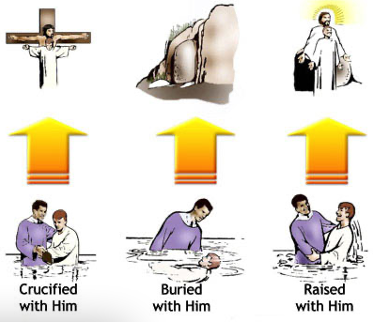
This is significant. Water baptism by immersion best pictures the death, burial, and resurrection of Jesus Christ (I Cor. 15:3-6). When a believer stands in the water, it pictures Jesus hanging on the cross (Rom. 6:3). When he is submerged under the water, it pictures Christ’s burial (Rom. 6:4a). And when the believer is brought up out of the water, it pictures Jesus’ resurrection (Rom. 6:4b).
Why was Jesus baptized in the Jordan River? Did He need to be saved? No. He was perfect. When John the Baptist tried to prevent Jesus from being baptized by him, Jesus said to John, “Permit it to be so now, for thus it is fitting for us to fulfill all righteousness.” (Matt. 3:15). Christ’s water baptism fulfilled “righteousness” in several ways: [41]
1. By His baptism, Jesus was identifying with the righteous remnant of Israel. This is a reference to experiential righteousness.
2. Jesus was identifying Himself with the sinfulness of His people even though He was not sinful (cf. 2 Cor. 5:21; Heb. 4:15; I Pet. 3:18). In this case the righteousness spoken of is positional and anticipates the cross. When Jesus died on the cross, He took away the sin barrier (John 1:29) and made it possible for all who believe in Him to have eternal life and positional righteousness (2 Cor 5:21; Rom. 4:5).
3. By His baptism, Jesus confirmed the righteous ministry of John the Baptist.
4. The event provided a true public testimony to the sinless character of Christ with the divine witnesses of God the Holy Spirit and God the Father present (cf. Matt. 3:16-17).
The Lord Jesus was baptized because it pleased His Father in heaven and provided an example for us to follow. Christ’s water baptism launched Jesus into His public ministry (cf. Matt. 3:13-17ff; Mark 1:9-15; Luke 3:21-23). Likewise, when a believer is baptized with water, it is meant to launch him or her into their public minstry. So, every time a believer is baptized by water, it puts a smile on God’s face.
1:34: John’s public testimony climaxes in his identification of Jesus as “the Son of God.” Jesus is God in human flesh (John 1:1, 14). He is fully human and fully God. He is the One Who was “with God” and who “was God” (John 1:1-2).
“Nowhere in the Fourth Gospel is the term son (huios) used to refer to believers (though see Gal. 4:6-7; 1 Thess. 5:5; see also Rev. 21:7, used of overcomers). Rather they are called children (tekna) of God (1:12). Jesus alone is called the Son of God in John’s Gospel.
“The Jewish people expected the Messiah to be the final and ultimate Son of God. All the kings of Israel were called sons (representatives) of God at their inauguration (cf. 2 Sam. 7:14). Of course, the ultimate fulfillment of those sons was the one and only Son (Ps. 2:7).” [42]
What a testimony! What a witness! What a voice! John points people to Jesus. He recognizes that it is not about him. He understands both who he is not (the Christ) and who he is (a voice). He understands his role: point people to Jesus.
Understand who Jesus is, so that you might believe on Him, and believing you might have life in His name (John 20:31). Recognize who you are not. This takes humility. Also recognize who you are. This takes confidence. You are a voice, a highway builder. Tell others of Jesus. Do not be ashamed. You and I are to be like bird dogs. Just as they point to a group of birds, we are to point people to Jesus, Who is the Lamb of God.
A father and his small son strolled down the street in Chicago past the place where a skyscraper was being constructed. Glancing up, they saw men at work on a high story of the building. “Father,” said the little boy, “What are those little boys doing up there?” “Those are not little boys, son. They’re grown men.” “But why do they look so small?” “Because they’re so high,” his father answered. After a pause the boy asked, “Then, Father, when they get to heaven there won’t be anything left of them, will there?” It is so true, the closer we get to Christ, the less others see of us and the more they see of Him. Point them to Jesus.
Prayer: Heavenly Father, we praise You for revealing through John the Baptist who we are not. Help us to humbly accept that we are not more or less than what You say about us. Thank You for revealing who we are in Christ. May Your Holy Spirit give us confidence to be Your voice to this generation of lost people who need to hear of the greatness of Jesus Christ, the Lamb of God, Who takes away the sin of the world. Lord Jesus, You have absolute authority in heaven and on earth to empower Your church to storm the gates of hell and rescue people who are bound for hell without Christ. Lead us in the power of the Holy Spirit to point others to Jesus with our lives and our lips so they may believe that Jesus is the Christ, the Son of God, that believing they may have life in His name. In the mighty name of Jesus we pray. Amen.
FOOTNOTES:
[1] https://www.raystedman.org/new-testament/john/call-the-first-witness.
[2] Wilkin, The Grace New Testament Commentary, Kindle Edition, pg. 178.
[3] Constable, Dr. Constable’s Notes on John, pg. 48.
[4] Ibid.
[5] Constable, Dr. Constable’s Notes on John, pp. 49-50.
[6] Ibid., pg. 50.
[7] Retrieved on June 13, 2023, from Hanna Wong’s excellent devotional, “Greatly Loved,” on the YouVersion Bible app (www.youversion.com). Download Hanna’s excellent 5-day plan entitled “Greatly Loved” at https://www.hosannawong.com/greatlyloved to unlock who you truly are in Christ.
[8] Blum, The Bible Knowledge Commentary Gospels, Kindle Edition, pg. 549.
[9] Wilkin, The Grace New Testament Commentary, Kindle Edition, pg. 181.
[10] Constable, Dr. Constable’s Notes on John, pg. 50 cites Donald A. Carson and Douglas J. Moo, An Introduction to the New Testament. 2nd ed. (Grand Rapids: Zondervan, 2005), pg. 145.
[11] Ibid., pp. 50-51 cites Morris, The Gospel According to John, pg. 123.
[12] Ibid.,pg. 51.
[13] Swindoll, Insights on John, pp. 42-43.
[14] Bauer, A Greek-English Lexicon of the New Testament, pg. 353.
[15] Tom Constable, Dr. Constable’s Notes on Matthew, 2023 Edition, pg. 711.
[16] Bauer, A Greek-English Lexicon of the New Testament, pp. 809-810.
[17] Ibid., pg. 809.
[18] Evans, The Tony Evans Bible Commentary, pg. 1923.
[19] Ibid., pp. 1923-1924.
[20] Bauer, A Greek-English Lexicon of the New Testament, pp. 303-304.
[21] Evans, The Tony Evans Bible Commentary, pg. 1924.
[22] Ibid., 1924-1925.
[23] Bēthania
[24] Laney, Moody Gospel John Commentary, pg. 50.
[25] Ibid.
[26] Ide
[27] Bauer, A Greek-English Lexicon of the New Testament, pg. 466.
[28] Constable, Dr. Constable’s Notes on John, pg. 52.
[29] Bauer, A Greek-English Lexicon of the New Testament, pg. 466.
[30] Evans, The Tony Evans Study Commentary, pp. 2406-2407.
[31] Constable, Dr. Constable’s Notes on John, pg. 53 cites Warren W. Wiersbe, The Bible Exposition Commentary. Vol 1 (Wheaton: Scripture Press, Victor Books,1989), pg. 287.
[32] airōn
[33] Constable, Dr. Constable’s Notes on John, pg. 53 cites Christopher W. Skinner, “Another Look at ‘the Lamb of God’,” Bibliotheca Sacra 161:641 (January-March 2004):89-104, for a review of nine views of the referent behind the “Lamb.”
[34] Constable, Dr. Constable’s Notes on John, pg. 53 cites Morris, The Gospel According to John, pg. 130.
[35] Wilkin, The Grace New Testament Commentary, Kindle Edition, pg. 181.
[36] Constable, Dr. Constable’s Notes on John, pg. 54 cites J. Vernon McGee, Thru the Bible with J. Vernon McGee. Vol. 4 (Pasadena, Calif.: Thru The Bible Radio; and Nashville: Thomas Nelson, Inc., 1983), pg. 375
[37] Blum, The Bible Knowledge Commentary Gospels, pg. 550.
[38] baptízō
[39] Bauer, A Greek-English Lexicon of the New Testament, pp. 164-165.
[40] rhatinzō
[41] Hal Haller, Jr., Robert Wilkin; J. Bond; Gary Derickson; Brad Doskocil; Zane Hodges; Dwight Hunt; Shawn Leach. “Matthew,” The Grace New Testament Commentary: Revised Edition (Grace Evangelical Society, Kindle Edition, 2019), pp. 17-18.
[42] Wilkin, The Grace New Testament Commentary, Kindle Edition, pp. 181-182.


